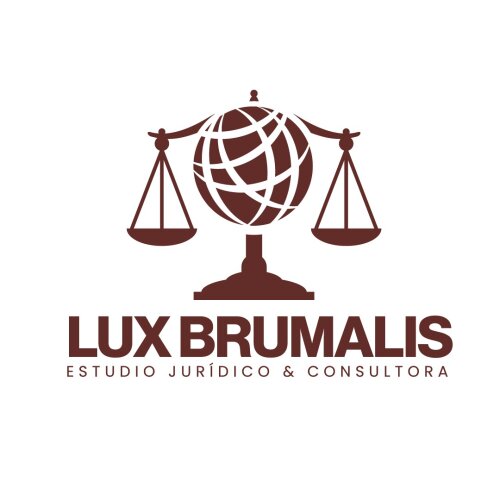Best Constitutional Law Lawyers in Rosario
Share your needs with us, get contacted by law firms.
Free. Takes 2 min.
List of the best lawyers in Rosario, Argentina
About Constitutional Law in Rosario, Argentina
Constitutional Law in Rosario, Argentina, encompasses the legal framework that defines the political and legal organization of the Argentine state. It establishes the division of powers, sets out the rights of citizens, and governs the relationship between different governmental entities and citizens. The Argentine Constitution is the supreme law of the country and affects all legal proceedings within Rosario, a major city that intertwines national constitutional principles with regional nuances.
Why You May Need a Lawyer
There are several common scenarios in which individuals in Rosario may require legal assistance in the field of Constitutional Law:
- Disputes involving civil rights and liberties, where an individual's rights may be violated by government authorities.
- Issues involving the interpretation of constitutional provisions, especially those requiring detailed legal knowledge.
- Cases related to the legality of legislative acts or government decisions.
- Matters of administrative law where governmental procedures may conflict with constitutional guarantees.
Local Laws Overview
Rosario, being part of the Santa Fe province, operates under the Argentine national legal system, which includes complex constitutional provisions. Key aspects of constitutional law relevant to Rosario include:
- The recognition and protection of fundamental rights such as freedom of expression, religious freedom, and the right to privacy.
- The division of powers between the national and provincial governments and their respective competencies.
- The role and authority of local government entities as defined by both national and provincial statutes.
- The legal processes concerning constitutional amendments and the judiciary's role in interpreting the Constitution in specific cases.
Frequently Asked Questions
What is Constitutional Law?
Constitutional Law involves the study and application of the Constitution, which is the fundamental set of laws and principles outlining the structure and function of government entities and laws within a country.
Who can challenge a constitutional violation in court?
Individuals, organizations, or governmental bodies that are directly affected by an alleged violation may challenge it in court.
How does the judiciary in Rosario handle constitutional cases?
The judiciary, including local courts in Rosario, relates constitutional cases to higher courts when necessary, ensuring that they adhere to constitutional mandates.
Can local laws override national constitutional provisions?
No, local laws cannot override national constitutional provisions. The Argentine Constitution is the ultimate authority in legal matters.
Are there legal protections for minority groups in Rosario under constitutional law?
Yes, constitutional law in Argentina includes protections designed to safeguard minority groups and ensure equality and non-discrimination.
Is freedom of speech absolute under the Argentine Constitution?
No, while freedom of speech is a protected right, it is subject to certain limitations, such as restrictions against hate speech and incitements to violence.
What role does the Ombudsman play in constitutional matters?
The Ombudsman acts as an independent public advocate tasked with protecting and promoting citizens' rights, often intervening in constitutional disputes.
How are constitutional amendments made in Argentina?
Amendments to the Constitution require congressional action, often involving a special legislative procedure and may also require a referendum.
How can someone defend their constitutional rights in Rosario?
Hiring a constitutional lawyer to present their case to the courts is often necessary to defend one’s constitutional rights effectively.
What happens if a law is deemed unconstitutional?
If a law is deemed unconstitutional, it is invalidated and cannot be enforced, and compensatory measures may be available to those affected.
Additional Resources
Individuals seeking more information on Constitutional Law in Rosario may find the following resources helpful:
- The Argentine Ministry of Justice and Human Rights, which provides legal frameworks and rights information.
- The Supreme Court of Argentina, whose rulings on constitutional matters are pivotal and informative.
- Local legal aid societies that can offer guidance and support in constitutional matters.
Next Steps
If you believe you require legal assistance in Constitutional Law, consider taking the following steps:
- Conduct an initial consultation with a skilled constitutional lawyer to discuss your case and understand your rights.
- Gather any relevant documents and accounts that pertain to your situation for thorough analysis and preparation.
- Explore potential legal aid services if financial concerns are a barrier to accessing legal help.
- Stay informed on your rights and related constitutional matters to ensure a proactive approach to your legal issues.
Lawzana helps you find the best lawyers and law firms in Rosario through a curated and pre-screened list of qualified legal professionals. Our platform offers rankings and detailed profiles of attorneys and law firms, allowing you to compare based on practice areas, including Constitutional Law, experience, and client feedback.
Each profile includes a description of the firm's areas of practice, client reviews, team members and partners, year of establishment, spoken languages, office locations, contact information, social media presence, and any published articles or resources. Most firms on our platform speak English and are experienced in both local and international legal matters.
Get a quote from top-rated law firms in Rosario, Argentina — quickly, securely, and without unnecessary hassle.
Disclaimer:
The information provided on this page is for general informational purposes only and does not constitute legal advice. While we strive to ensure the accuracy and relevance of the content, legal information may change over time, and interpretations of the law can vary. You should always consult with a qualified legal professional for advice specific to your situation.
We disclaim all liability for actions taken or not taken based on the content of this page. If you believe any information is incorrect or outdated, please contact us, and we will review and update it where appropriate.








